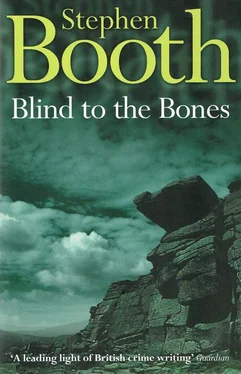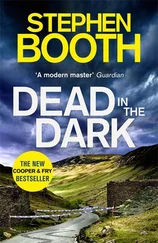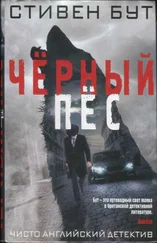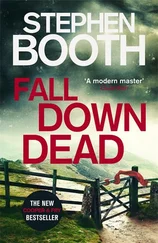‘They’re earmarked for action in the near future,’ said Venables stiffly.
‘So neither the Oxleys nor anyone else has tenancy of the empty houses?’
‘No. I told you, they’re void. Why?’
‘We may wish to search Trafalgar Terrace. Do we have your permission for that, sir?’
‘Of course. But you’ll have to be quick.’
‘Why? Is there something you’re not telling me, sir?’
‘Our contractors will be moving in very soon to start work.’
‘You’re repairing the houses?’
‘Demolishing them,’ said Venables.
Cooper stared at him. It was an obvious thing to do, really. In fact, it should have been done a long time ago. But it seemed like another sign of that impermanence that Tracy Udall had put her finger on. It was another bit of Withens about to disappear.
‘How did you come to rent all the houses in Waterloo Terrace to members of the Oxley family?’ said Cooper.
‘I know it looks a little unusual. If the properties were to fall vacant now, I don’t think it would happen again. The company would be looking to increase the rents substantially, for a start. But at the time it was thought there was no demand for rented properties in Withens. So the company decided to leave the old policy in place — the policy that tenancies could be passed on to members of the same family. It’s a very old principle, designed to ensure a worker’s family wasn’t turned out on to the street if the man himself was killed during his employment. The early proprietors were concerned about their employees’ welfare. They were almost philanthropists.’
‘Compared to the present owners, you mean?’
‘I couldn’t possibly comment.’
‘Property values have changed in Withens in recent years, I suppose?’
‘There’s still a shortage of demand for rental properties. But the company has been approached by a private developer interested in purchasing the entire row of houses.’
‘You mean the company is going to sell Waterloo Terrace?’
‘It makes sound commercial sense.’
‘But new owners would have to take on the sitting tenants, wouldn’t they?’
‘Of course. The tenants have rights that are protected by law.’
Cooper studied Venables. So often he found himself trying to hear the words that people weren’t saying, because that’s where the true meaning lay. But there was more than one communication gap involved in the Withens case. In fact, there were as many communication gaps as there were combinations of people trying to communicate with each other. The result was a Babel in his head.
‘New landlords would mean big changes for the Oxleys, wouldn’t they, Mr Venables?’ he said.
‘Well, undoubtedly,’ said Venables, with a smile. ‘Undoubtedly.’
‘And do you know what the new owners plan for Waterloo Terrace?’
‘Oh yes, I know.’
‘Demolition?’
‘I imagine that would be the preferred option.’
‘But they can’t demolish the houses with sitting tenants, can they?’
‘Of course not. As I said, they’re protected.’
‘So the Oxleys would need to be got out of Waterloo Terrace in some way.’
‘To make it worthwhile for the developers, yes. But I’m not suggesting there’s any kind of conspiracy to intimidate them and get them out. That would be unethical.’
‘Not to mention illegal.’
‘Quite.’
‘It seems to me that no one is making much effort to keep the Oxleys in their homes, either.’
Venables shrugged again. Cooper was starting to get irritated by the shrug. Of all the complacent gestures that people were capable of, the shrug was the second most annoying, after the smirk.
‘We believe they’ve done some unauthorized structural alterations. That will probably be the clincher,’ said Venables. ‘They’re their own worst enemies, I’m afraid.’
‘I know. But that doesn’t mean they don’t deserve to have any friends.’
‘Oh? And are you intending to fill that role? A friend of the Oxleys? I know that police work is different these days from what it used to be. But is that really your job?’
Cooper gritted his teeth. Of course it wasn’t his job. He didn’t need Venables to tell him that. He had Diane Fry to do it for him.
‘If I were you, I’d choose my friends more carefully,’ said Venables.
And then he smirked.
DC Gavin Murfin looked mournfully at the remains of a vanilla slice on his desk. Its enticing yellow smile had disintegrated into a few dusty flakes of pastry before his eyes.
‘No signs of a previous diary,’ he said. ‘No likely looking randy art lecturers. That Stark girl laughed at me when I tried her with some names. She has a colourful turn of phrase, for a lass.’
‘It doesn’t matter, Gavin,’ said Diane Fry.
‘Doesn’t matter?’
‘Not now.’
‘I spent hours on that.’
‘If Emma Renshaw arrived back in Withens, the person we’re looking for is a lot closer to home than Birmingham Art School.’
‘Right,’ said Murfin. ‘You’re right.’
He considered it for a moment. ‘Tell you what,’ he said, ‘the day Emma went missing... Do we know Howard Renshaw’s exact movements that day?’
Ben Cooper was remembering the man from the Sunday-morning crowd at Somerfield’s supermarket. Last Sunday, he had been trying to tell some story about distraction burglaries in the Southwoods area, and Cooper hadn’t been taking much notice. It had sounded pretty small-scale stuff, which someone else would be dealing with, thank goodness. But perhaps he should have listened more carefully. Hadn’t the old man mentioned an incident involving genuine antiques? ‘They must have driven right past my window to get to Southwoods Grange.’
And what else had he been saying? Cooper thought about Golden Delicious apples and pineapple chunks for a few seconds before he got it. Car registration numbers.
On Friday afternoon there was a totally different crowd in the supermarket. And many of the staff were different, too. Cooper introduced himself at the duty manager’s office and got permission to speak to the checkout assistants and the bag packers, the trolley collectors and the woman at the cigarette counter. One of the older staff on the checkouts thought she remembered the man with the walking stick, but had no idea of his name. She said he was a customer who always paid cash.
‘And he always comes in on Sunday, I think,’ she said.
‘Yes, he does.’
‘Like you, in fact.’
‘Yes, that’s right.’
‘You’re the frozen meals for one and the Boddington’s six-packs, aren’t you?’
‘Yes.’
‘I never knew you were police.’
Cooper moved on. All he had achieved was to let the checkout assistant know more about him than she did about the man with the walking stick.
This afternoon, the supermarket’s frozen meat section looked unnervingly like the postmortem room at a giant morgue, with frozen body parts stacked in freezers, neatly packaged and labelled. Fortunately, these weren’t human parts, but bits hacked off cows and sheep and pigs. He could understand why people became vegetarians. Perhaps the trick was not to look closely — to see only the price label on the plastic packages and the ‘best before’ date, not the reality of the meat and bones underneath.
Outside, he tried to remember which way the man went when he left the supermarket. Often, he walked with Cooper to his car and talked to him while he loaded up his shopping. Then Cooper would say goodbye, get in his car and drive towards the exit. Had he ever noticed which way the man with the stick went?
He had a brief recollection of being held up at the lights by traffic one morning and seeing the man waiting at the pedestrian crossing with his shopping bag on wheels to cross to the corner of Eyre Street. From there, he would have only a short walk to the bus stops in front of the town hall, where there were services running to all the areas on the eastern and northern sides of Edendale. It was no help at all.
Читать дальше
Конец ознакомительного отрывка
Купить книгу












